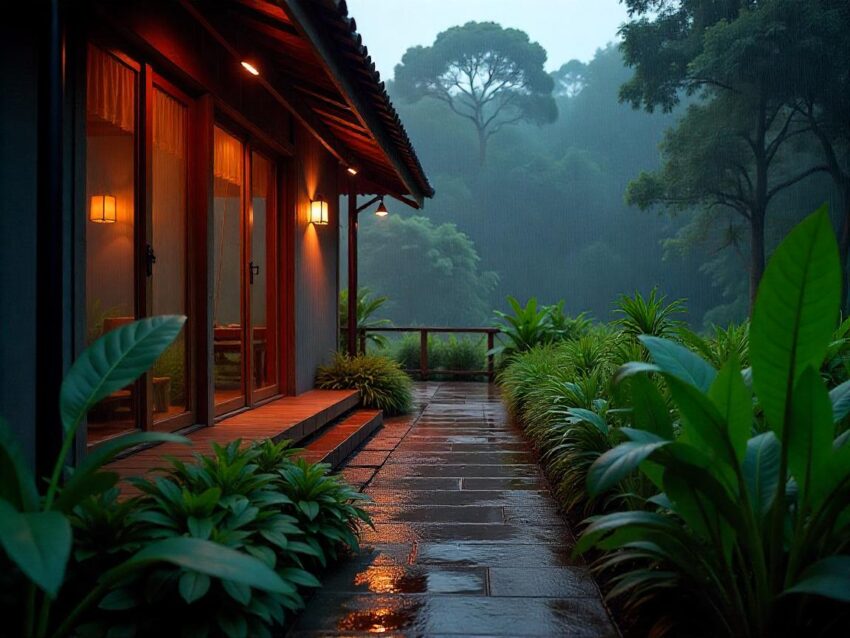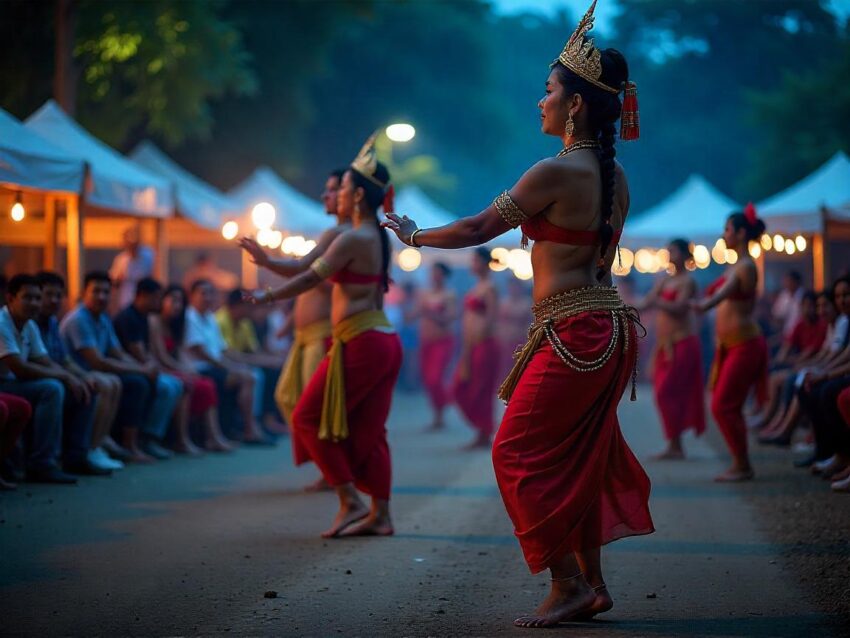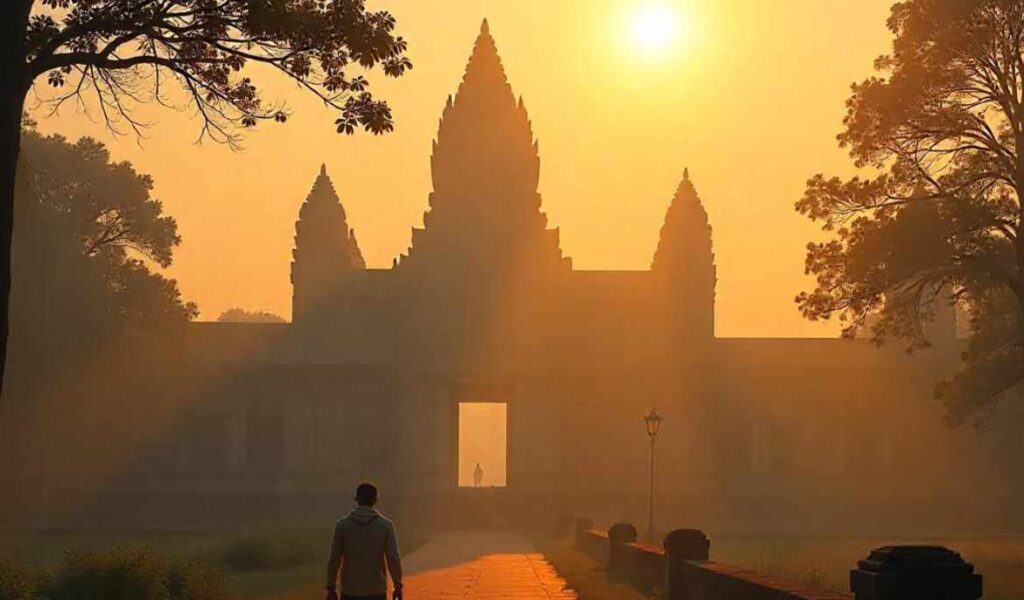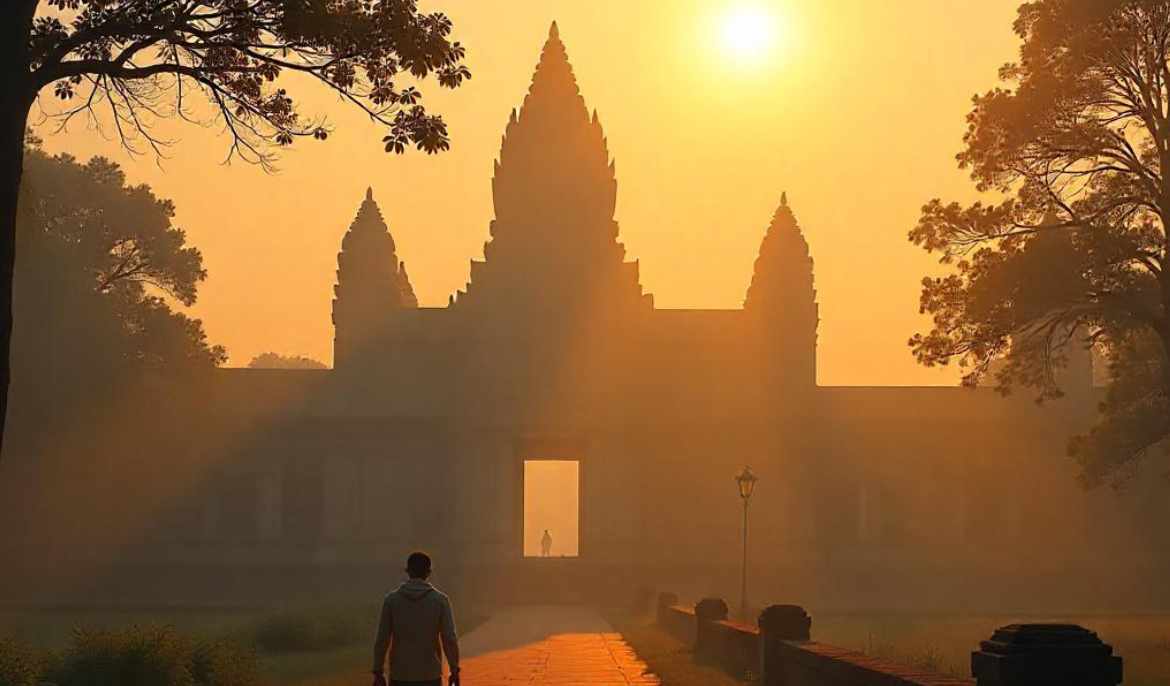Thailand, Vietnam, Cambodia, and Indonesia ignite a global eco-tourism wave in 2025. Thailand, Vietnam, Cambodia, and Indonesia are no longer just beach escapes or cultural stops. Instead, Thailand, Vietnam, Cambodia, and Indonesia ignite a global eco-tourism movement like never before. These nations are not just participating in tourism—they’re leading it. Thailand, Vietnam, Cambodia, and Indonesia ignite demand by offering lush landscapes, wellness retreats, and eco-spiritual havens. Thailand, Vietnam, Cambodia, and Indonesia ignite curiosity among travelers longing for peace and purpose.
Now, tourists from Canada, Australia, and the US are responding. Tourists from Canada, Australia, and the US are packing bags—not for luxury malls or sightseeing buses—but for forest hikes, jungle spas, and barefoot beach yoga. Tourists from Canada, Australia, and the US want healing. Tourists from Canada, Australia, and the US want sustainable travel. Tourists from Canada, Australia, and the US now see Thailand, Vietnam, Cambodia, and Indonesia as eco-tourism sanctuaries.
This wave isn’t temporary. Thailand, Vietnam, Cambodia, and Indonesia ignite long-term travel shifts. Tourists from Canada, Australia, and the US now value reconnection over recreation. Thailand, Vietnam, Cambodia, and Indonesia ignite emotional transformation. Thailand, Vietnam, Cambodia, and Indonesia ignite environmental awareness. And yes—Thailand, Vietnam, Cambodia, and Indonesia ignite tourism growth.
So, what you need to know is this: Thailand, Vietnam, Cambodia, and Indonesia ignite something deeper than trends. Tourists from Canada, Australia, and the US are part of this. What you need to know is simple—eco-tourism is booming. And it begins here.

Southeast Asia is calling—and this time, the message is one of renewal, retreat, and reconnection. In 2025, countries like Thailand, Vietnam, Cambodia, and Indonesia are not just popular travel destinations—they are rising as the global capitals of eco-tourism and wellness.
Tourism boards across these nations are aggressively targeting long-haul travelers from Canada, Australia, and the U.S., not with bustling city lights or mega malls—but with lush jungles, healing spas, and carbon-conscious sanctuaries.
This isn’t a trend. It’s a travel awakening.
A Shift from Adventure to Alignment
Travelers from North America and Oceania are no longer chasing adrenaline. They are craving clarity, healing, and harmony. Post-pandemic stress, environmental fatigue, and digital overload have given rise to a new kind of luxury: eco-wellness experiences rooted in authenticity and sustainability.
Thailand’s wellness resorts, Vietnam’s coastal sanctuaries, Cambodia’s jungle escapes, and Indonesia’s volcanic hideaways are pulling in high-value tourists looking to reset body and mind. These are not just vacations—they are intentional pilgrimages into serenity.
Thailand: The Gateway to Soulful Rejuvenation
Thailand is leading the Southeast Asian wellness charge. With sprawling wellness hubs in Chiang Mai, Koh Samui, and Phuket, the country offers deeply immersive retreats where yoga, Ayurveda, herbal therapies, and Buddhist teachings converge.
Luxury wellness brands like Chiva-Som and Kamalaya are curating programs that fuse spiritual wisdom with clinical precision. But beyond premium resorts, even village homestays and forest temples are opening their arms to eco-conscious visitors seeking ancient healing traditions.
Canadian and U.S. travelers are increasingly booking month-long wellness sabbaticals in Thailand, lured by affordability, climate, and deep cultural roots in wellness philosophy.

Vietnam: Coastal Calm Meets Mountain Mindfulness
Vietnam is emerging fast as a contender in the ecological retreat space. From the emerald waters of Ha Long Bay to the terraced hills of Sapa, the country’s natural geography sets the stage for sustainable, soul-restoring escapes.
Wellness resorts in Da Nang, Hoi An, and Ninh Binh are embracing organic cuisine, silent meditation, and eco-construction. Canadian digital nomads and U.S. entrepreneurs are booking extended stays in Vietnam’s eco-lodges, especially those that offer detox programs, herbal saunas, and energy-balancing therapies.
Moreover, Vietnam’s tourism authorities are backing wellness tourism with new visa ease programs for long-stay travelers from Canada and Australia.
Cambodia: Spiritual Escapes in the Kingdom of Temples
Cambodia’s tourism renaissance is unfolding not in night markets, but in sacred silence.
Near the legendary Angkor Wat, jungle wellness lodges are combining Khmer healing traditions with modern holistic techniques. Retreats near Siem Reap and Kampot now offer rituals, water blessings, and herbal compress therapy in unspoiled forest environments.
Australian travelers, especially women aged 30 to 50, are leading a sharp rise in Cambodian eco-tourism bookings—many choosing this destination for spiritual realignment and solitude.
Cambodia is promoting these experiences as “sanctuaries for the soul,” especially suited for long-haul guests looking to unplug in culturally rich, spiritually resonant spaces.

Indonesia: Bali Beyond the Beach
While Bali continues to shine globally, the island’s evolution from beach party hub to eco-wellness sanctuary is gaining speed.
New resorts across Ubud, Canggu, and Sidemen are abandoning luxury excess in favor of plant-based menus, permaculture gardens, sacred sound baths, and immersive local rituals.
Australia remains the dominant market here—but Bali’s healing narrative is now reaching North American travelers who are willing to travel halfway across the world for a stay in jungle domes, bamboo villas, and cliffside yoga pavilions.
Even lesser-known Indonesian islands like Lombok and Sumba are developing eco-retreats, thanks to new sustainable airport hubs and private villa developments focused on wellness-centric tourism.
Airline Connectivity and Eco-Policy Push
Airlines are taking note. Direct and indirect routes linking Toronto, Vancouver, Los Angeles, New York, and Sydney with Southeast Asian wellness hotspots are being expanded by major carriers including Singapore Airlines, Thai Airways, Vietnam Airlines, and Garuda Indonesia.
These airlines are bundling flights with retreat packages and promoting carbon-offset programs, upgraded premium cabins, and flexible schedules designed for longer stays and wellness travelers.
Meanwhile, Southeast Asian governments are adopting pro-tourism eco-policies. Thailand and Indonesia have introduced green certification standards for spas and retreats. Vietnam is rolling out a digital detox tourism pilot project. Cambodia is incentivizing remote wellness startups to operate in rural eco-zones.
Together, these initiatives are creating a seamless experience for Canadian, Australian, and American travelers—from arrival to renewal.
Tourism with a Deeper Purpose
The emotional impact of these journeys cannot be overstated. Travelers report not just rest—but transformation.
As the global tourism market becomes more commodified, Southeast Asia is successfully selling something priceless: peace, presence, and purpose. Visitors are not just consuming a destination—they are communing with it.
Wellness is no longer a niche—it is a mainstream travel driver. Ecological luxury is no longer rare—it’s expected. And Southeast Asia is delivering both, rooted in centuries-old traditions and biodiverse landscapes.
Final Thoughts
In 2025, Thailand, Vietnam, Cambodia, and Indonesia are not only reopening their borders—they’re redefining what travel means. For Canadian, U.S., and Australian tourists, the message is simple and powerful:
Come not just to escape. Come to heal, grow, and reconnect.
These countries aren’t just destinations. They are living, breathing sanctuaries—and the world is finally paying attention.



